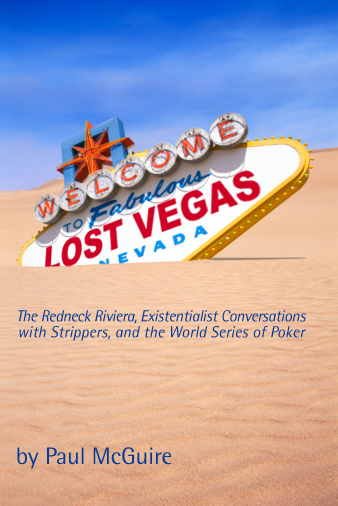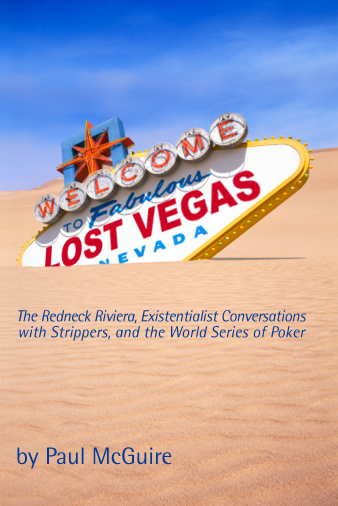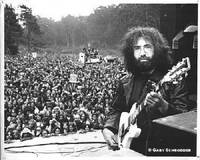Los Angeles, CA

I love a good conspiracy. It's even better when you're on the inside of one.
It's been a life long goal for me to be directly involved with a cabal of insiders who work methodically behind the scenes to influence an outcome of a major event. My dream is to walk down the 14th fairway and discuss a scheme to take over the world with the Cigarette Smoking Man (a.k.a. Dick Cheney).
I watched too many Scorsese films as a kid and heard many stories about fixed sporting events. My old man, my uncle, and their gambling buddies often told tales about the college basketball scandals in New York City the 1950s and 60s. My uncle attended NYU during their devastating point shaving scandal. Embarrassed by the fallout, the university dropped the basketball program altogether for many years.
Since the inception of the "point spread" wiseguys influenced the outcomes of sporting events -- baseball, football, basketball, boxing, and horse racing. Fixing events is not a problem indigenous to America. In Europe, the tennis circuit is fertile ground for thrown matches. Even the cricket world in Australia and India is plagued with scandals when entire teams take a dive. When it comes to sports betting, anything is in play. At any given time, the fix could be in. In a perfect world, you sit around and wait for one of those cryptic calls of a lifetime: "Bet the farm on ______."
Everyone loves easy money because money is difficult to obtain. We have to bust our asses and deal with inept bosses in order to get a few crumbs. The best formula for wealth accumulation is betting on the right side of the fix. Doesn't matter if it's college basketball, online gaming legislation, pharmaceutical stocks, or who is going to win the next American Idol.
One of these days, I'd like to be betting on the right side of the fix. In a way, I'm part of a larger conspiracy as someone who get paid to innocently grease the wheels of the mighty poker-industrial-entertainment complex. Even if I'm honest and tell you the truth, the deviant side of poker is enough to entice you to download PokerStars and start playing right away.
The bottom line is this... people are more drawn to the forbidden fruit. It's curiosity that lures you around those darkened corners.
 The masses know that poker is highly addictive, and that the whirlwind scene on the circuit is infested with vampires, whores, and other parasites -- all of whom are trying to steal every cent out of your poker (both straight up and on the sly). Mostly everyone is aware that they are swimming in the murky political waters of online poker. However, despite the obvious downsides, people are still cajoled by the outlaw nature of poker. I can't think of too many self-employment opportunities (aside from being a drug dealer) with a fast track to wealth, power, and fame. Poker is one of the few places in society where you have a chance to do your own thing while telling all of your dissenters to "Suck the big one."
The masses know that poker is highly addictive, and that the whirlwind scene on the circuit is infested with vampires, whores, and other parasites -- all of whom are trying to steal every cent out of your poker (both straight up and on the sly). Mostly everyone is aware that they are swimming in the murky political waters of online poker. However, despite the obvious downsides, people are still cajoled by the outlaw nature of poker. I can't think of too many self-employment opportunities (aside from being a drug dealer) with a fast track to wealth, power, and fame. Poker is one of the few places in society where you have a chance to do your own thing while telling all of your dissenters to "Suck the big one."Poker is riddled with cheating even though all the powers to be do their best to keep the game clean. It's in the industry's best interest to run a fair game. Unfortunately, angle shooters are constantly concocting get rich quick schemes in an attempt to exploit flaws in the security apparatus. When in doubt, if you can't circumvent the machines, you can always bribe a human to look the other way while you do your dirty deed. Those shitstains have no qualms about ripping off players and undermining the credibility of the online sites. They have a skewed sense of entitlement and pathological criminals who operate without any semblance of remorse (similar to the Worm character in Rounders).
It's easy to say that the fix is in, however, it's nearly impossible to pull the fix off.
I went to high school with an intelligent guy who attended a fancy engineering college with three letters. Let's call him Tino. Well, Tino racked up four different degrees ranging from computer science to mechanical engineering to mathematics. He opted for a life in academia and taught at different colleges in the Midwest. He never made much money -- teachers rarely do.
When I worked on Wall Street, Tino showed me one of his side projects that took him five years to perfect. In something out of the film, Pi, he locked himself in his office until Midnight every night and spent his entire weekends writing code for a special program that recognized patterns in the options market. He had yet to apply the program in real life because he did not trust his local broker with his data. In addition, he didn't really have any money to invest because he had just gotten married and was about to start a family. It takes money to make money in this world. He had a system, but no bankroll. That's why he asked me to introduce him to influential people that would be interested in selling his program.
Tino had balls. He attempted to manipulate the financial system set in place by Milton Freidman's philosophy of economics. I always wondered if his program was bought by greedy Berbers who wanted to make money, or the powers to be were so afraid of what he could do with that knowledge, that they decided to destroy it.
A few years ago, I told Tino about the booming sports betting industry and emerging fantasy sports gambling market with Fantasy Sports Live. He decided to write a new program that analyzed past performance trends in an attempt to predict the outcome of a game. When we put it to the test, the first incarnation of this program contained too many bugs and his forecasts were inconsistent. We couldn't handle the swings and he went back to work on a second and eventually a third version of his program. At least we didn't lose any money, but learned a few lessons.
These days, instead of writing code, Tino is fascinated with taking advantage of inaccurate MMA betting lines. It's funny because he looks like a typical nebbish college math professor and often joked that he might be the only person that Woody Allen could beat up if those two ever stepped into the Octogon for a bare knuckle fight. Tino scouted the fighters and analyzed the cards in search of the best possible value to bet on. When I asked him what his computer thought of the last event in Las Vegas, he told me, "Nothing. I do all of this research manually."
It's not that Tino gave up on computers or the preciseness of mathematics and statistics. He felt strongly that a computer program can only give you so much information.
"My computer doesn't have eyes," Tino said.
"It doesn't have eyes... yet," I responded.
Tino emphasized that human analysis is more important with ultimate fighting and mixed martial arts, because that sport is more about art than the science of statistics like a sport like baseball. Basically, before making a decision about a match, he studied the tapes. He watched every single possible fight, recorded painstakingly detailed notes, and then went with his gut. He avoided favorites and patiently waited until the perfect opportunity presented itself. Sometimes he'd wait several months to make a bet, but when he found a fighter and odds he liked, he would bet big. I put in a few wagers for him and these weren't annoying $20 bets that your friends ask you to make for them when you go to Vegas. Even tenured professors don't pull in that kind of cash. With a wife, two kids, and two cats, he's a guy who wasn't going to gamble a percentage of his net worth on a coin flip. Rather, he was wisely investing in his future.
Even then, I wasn't convinced that he was using the force like Luke Skywalker and trying to blow up the Death Star by closing his eyes. When it comes to betting and gambling, I prefer to err on the side of math and statistics, which was why I had doubts over my friend's MMA pick(s). I'm not an MMA fan and usually want to have a firm grasp on a sport before I bet on it (which doesn't always hold true -- but that's the difference between being an educated gambler and a reckless degen). I did not piggyback his MMA picks, like I did with his stock selections or college basketball picks. I was skeptical. Every once in a while I'll put a bet for him at a casino or online sportsbook. He wins all of the time, which makes me wonder if he's really onto something.
But as Murphy's Law states, as soon as I jump on his bets, he will embark on a bitter cold streak. I don't want to be a jinx and fuck with the guy's mojo. After all, he's got a family to support.
His decision to shy away from computers and statistics worried because he is a career mathematician. For almost two decades, he based his entire life on numbers and percentages and all of a sudden tossed that out the window. I'm intrigued that he shed the shackles of technology and used his own brain in figuring out which meathead was going to beat the shit out of the other. But, something happened that altered his philosophy and he still hasn't revealed the details of that watershed moment. Maybe he senses enslavement from the machines?
I'm praying that Tino does not go Unabomber on me (the real Unabomber that lived in the Montana woods and not the poker pro known as Phil Laak). I'm afraid that I'm going to wake up one day and find a package on my doorstep -- a 346 page manifesto written in long hand outlining the evils of technology and why he was sick of participating in the creation of a real life Skynet.
When will the machines take over our lives? Well, they already have.
Generation X was the first wave of humans that our parents handed over to the machines. The first losing battle happened when us little kids were still shitting and pissing ourselves as we starred mindlessly at the box in our living rooms. Those rapid visual messages conditioned us to become mindless consumers. We moved onto video games and got more distracted by the ever expanding cable TV market, which kept us teenagers indoors instead of gathering in groups outdoors and protesting the government like our parents' generation did in the 1960s. Now with the internet, more information is available than ever before and the powers to be are doing everything they can to prevent the masses from accessing enlightening data that might encourage or persuade the public to form a revolution.
Is it a coincidence that the internet is being used more to make you look cool, than it is to educate you on a topic that you know little to nothing about? Social media, especially Facebook is the nasty elephant in the room which sucks up more and more time everyday. Life is tough enough living in the real world, but when you have an online personae and a second life to maintain and cultivate, the extra work and alternative reality often complicates things.
Yep, we're slaves to the machines. There's a reason my smartphone is called a CrackBerry. I can do almost everything with my CrackBerry short of actually smoking crack out of it, but I know a guy from college who was the MacGuyver of potheads and could make a bong out of anything. I betcha if I gave him two hours and a pair of tweezers, he could transform my CrackBerry into a functioning smoking device.
I'm a stone cold junkie when it comes to the machines. I cannot function without the internet or marijuana. I tried to life a day without either and I was miserable. If I can't find weed, I can get drunk or find something else to dull the pain, but finding an alternative to the internet is... impossible.
How do I get my e-fix without the interwebs? Sure, I can check out People of Walmart in real life, because it only requires physically going to a Walmart. However, I cannot participate in Guess Her Muff in real life, because finding out what is below the equator on my MAW (model, actress, whatever...) waitress at King's Road Cafe is much more difficult that you think. Chances are, if I peek underneath her skirt to investigate if she's shaved, has a landing strip, or kicking it old school with feral growth, then I will surely get a black eye or even worse, have my Miranda rights read to me after being arrested for sexual assault.
Nobody wants to be the lone gunman.

























